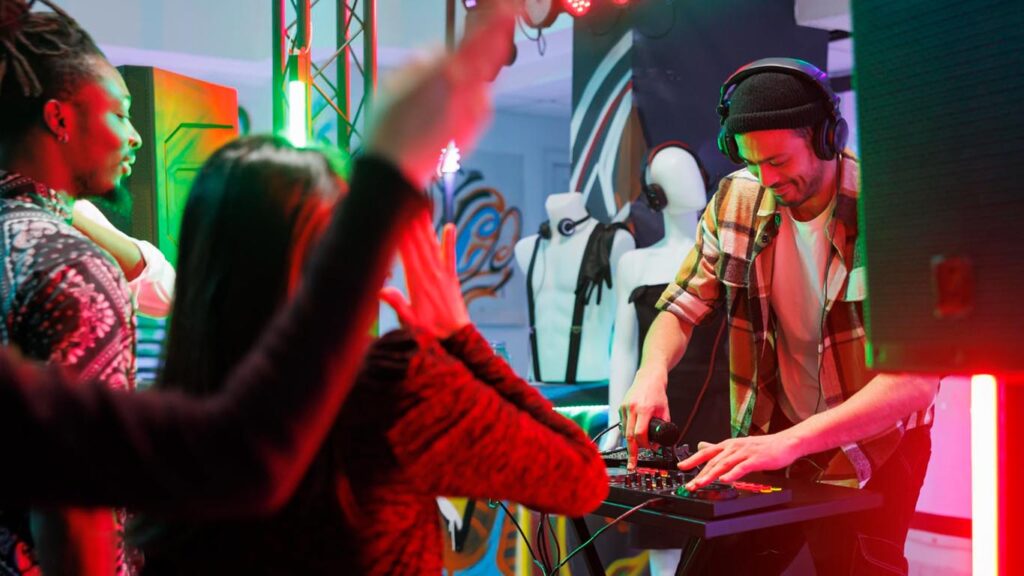Entertainment has undergone a massive transformation over the past few decades, thanks to advancements in technology. From the days of radio and black-and-white television to today’s streaming services, virtual reality, and AI-driven content, the way we consume media continues to evolve. This article explores how technology is shaping modern entertainment and what the future holds for consumers.
1. The Rise of Streaming Services
Traditional cable television and movie theaters once dominated the entertainment industry. However, the rise of streaming platforms like Netflix, Disney+, and Amazon Prime has revolutionized content consumption.
Streaming services offer on-demand access to movies, TV shows, and exclusive content, eliminating the need for scheduled programming. With personalized recommendations powered by AI, viewers can easily discover new content that matches their interests. The decline of traditional cable subscriptions, often referred to as “cord-cutting,” highlights how consumers now prioritize flexibility and convenience.
2. The Shift from Physical Media to Digital
In the past, music lovers collected CDs, movie fans owned DVDs, and gamers purchased physical copies of their favorite titles. Today, digital downloads and cloud-based entertainment have largely replaced physical media.
Services like Spotify and Apple Music allow users to stream millions of songs without needing physical storage. Similarly, platforms like Steam, PlayStation Network, and Xbox Game Pass enable gamers to download or stream games instantly. The shift to digital has made entertainment more accessible while reducing costs and environmental impact.
3. Social Media and User-Generated Content
Social media platforms like YouTube, TikTok, and Instagram have transformed entertainment by allowing users to create and share content. Unlike traditional media, which relies on large studios and networks, anyone with a smartphone can become a content creator.
Influencers, vloggers, and independent filmmakers now have a global audience without needing major production budgets. TikTok, in particular, has changed the way short-form video content is consumed, with trends and challenges going viral in seconds.
4. Virtual Reality (VR) and Augmented Reality (AR)
VR and AR are revolutionizing how we experience entertainment. VR headsets like the Meta Quest and PlayStation VR allow users to immerse themselves in virtual worlds, enhancing gaming, movie-watching, and even virtual concerts.
AR, on the other hand, blends digital elements with the real world. Popular AR applications include Pokémon GO, interactive museum exhibits, and Snapchat filters. As these technologies become more advanced, they will further blur the line between digital and physical entertainment experiences.
5. Artificial Intelligence in Entertainment
AI is playing a growing role in entertainment, from personalized content recommendations to AI-generated music and deepfake technology. Platforms like Netflix and Spotify use AI to analyze user behavior and suggest content tailored to individual preferences.
Additionally, AI-generated influencers, such as Lil Miquela, are gaining popularity, raising questions about the future of digital personalities. AI-powered writing tools are even assisting in scriptwriting for movies and TV shows, signaling a new era of content creation.
6. The Future of Gaming: Cloud Gaming and AI-Driven Experiences
Gaming has evolved from simple arcade machines to complex, immersive experiences powered by cloud computing and AI. Cloud gaming services like Google Stadia, NVIDIA GeForce Now, and Xbox Cloud Gaming allow players to stream high-quality games without needing expensive hardware.
AI is also transforming gaming by creating adaptive experiences, where games adjust difficulty levels based on player behavior. NPCs (non-playable characters) powered by AI are becoming more lifelike, providing richer storytelling and interactions in games.
7. The Impact of 5G and Faster Internet
Faster internet speeds, powered by 5G technology, are enhancing entertainment experiences. Streaming in 4K and even 8K is now possible with minimal buffering, and online multiplayer gaming has become smoother and more immersive.
5G also paves the way for real-time interactive experiences, such as live concerts in virtual reality, augmented reality shopping, and AI-driven content creation. As connectivity improves, entertainment will become even more seamless and interactive.
Conclusion
Technology has completely reshaped how we consume entertainment, making it more accessible, interactive, and personalized than ever before. From streaming services and social media to AI-driven content and VR experiences, the future of entertainment is constantly evolving. As technology continues to advance, we can expect even more innovative ways to enjoy and engage with media in the years to come.
Share this content:



